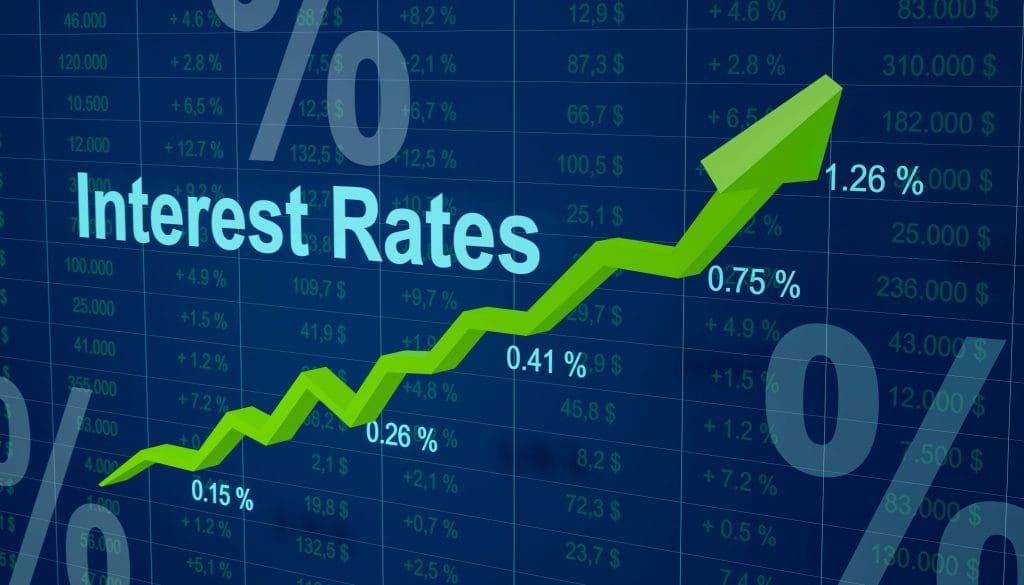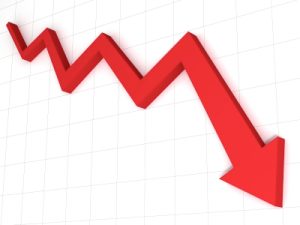There is no debate that the housing market has been performing exceptionally well over the last couple of years, despite headwinds brought about by COVID-19. However, borrowers now face new challenges in the form of increasing inflation and rising interest rates.
Mortgage interest rates have been near historical lows for some time as demand for homeownership remains high. But as the old saying goes, nothing lasts forever.
The Bank of Canada has already signaled it will begin to increase rates over the next year, starting near the end of February.1
In fact, many analysts predict rates to jump fairly quickly. Markets anticipate around seven hikes throughout the year, although this would largely be dependent on how the economy is performing as a whole.
There are many reasons why it is advantageous to buy now rather than waiting until later when rates are higher. If you were on the fence deciding whether now is the right time to buy a new home, here are some things you should consider that may make you think twice about pushing off that new home purchase.
1. Lower Pricing and Costs
Buying your new home now versus waiting a couple of months could translate to thousands of dollars in savings. While small, incremental rate increases may not seem like a lot, when you consider the average home price across the country is around $720,850, even a fractionally higher interest rate ca mean a lot more interest you will have to pay over the life of your loan.2
Similarly, lenders are also shifting focus to purchase activity as higher interest rates may start to dissuade and erode applications for refinancing. This means lenders will be competing against one another. Leverage the pricing competition to your advantage as markets transition into a purchase heavy cycle.
2. Heightened Purchasing Power
Increasing interest rates have a direct impact on the amount of home you can afford. Experts have often said that for every 1% increase to rates translates to approximately 10% less buying power.
Higher rates have a direct impact on loan amounts. For example, suppose you decide to purchase a modest new house, but have a strict budget that you cannot exceed for your monthly housing payment.
All else equal, your purchase power could decline substantially with even a minor increase in rates because in order to keep the payment the same for a mortgage with a higher rate, you would have to compromise by lowering the loan amount.
A swing in rates could spell a reduction of thousands of dollars in buying power which is why it’s ideal to leverage your elevated purchasing power now, while rates are effectively low. Do lose out on your ability to get the most home for your budget.
3. Liberal Lending Standards
Another reason to buy a home now while rates are still low is because you never know when credit will be this cheap or easy to obtain again. In general, Canadian credit scores have been improving making it easier for you and other borrowers to qualify for a new home loan.
According to Borrowell, the average score in 2021 was 667, up from 649 in 2020.3 While your credit score may be well above or below this curve, the fact remains that creditors are still very willing to lend out money and the trend indicates borrowers should meet the benchmark criteria in qualifying for a new mortgage.
It’s important to buy while credit standards remain more liberal and while borrower credit trends are improving. As rates increase, lenders may tighten lending requirements, which can make it harder to qualify for a new loan.
Key Takeaways
It’s finally time to take a step back and accept the fact that mortgage interest rates will be going up. The Bank of Canada has all but guaranteed rate increases over the next several months.
While it shouldn’t come as a shock since rates have been near historic lows for quite some time, now is the time to act to ensure you don’t leave thousands of dollars on the table.
Waiting to buy and see what rates will do is a risky move which could have wider implications that you realize. You could end up paying more for a similar home in a couple of months.
Far worse is if you are already someone who is on the edge of being able to afford a new home, rising rates could delay your ability and opportunity to buy a home for the foreseeable future.
It’s important to consider buying now while factors like lower pricing, heightened purchasing power, and liberal lending requirements are still to your advantage.
Sources
1 Hughes, S. (2022, January 26). What a Bank of Canada rate hike could mean for mortgages and the housing market. Financialpost. https://financialpost.com/real-estate/mortgages/what-a-bank-of-canada-rate-hike-could-mean-for-mortgages-and-the-housing-market
2 Hughes, S. (2022, January 26). What a Bank of Canada rate hike could mean for mortgages and the housing market. Financialpost. https://financialpost.com/real-estate/mortgages/what-a-bank-of-canada-rate-hike-could-mean-for-mortgages-and-the-housing-market
3 Surman, R. (2021, January 18). What is the Average Canadian Credit Score? BorrowellTM. Retrieved February 21, 2022, from https://borrowell.com/blog/highest-canadian-credit-score-study






